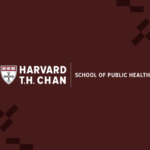You’re reading Show and Tell, which highlights communication “wins” from our community. Want more inspiration like this? Subscribe to our Call to Action newsletter. What to see your work here? Tell us about your win.
Who I am: Jack MacDonald, Program Coordinator at CAUSALab, Public Health Voices fellow at the Harvard LGBTQ Health Center of Excellence, & overdose prevention advocate
What I created: I wrote an op-ed for Out Magazine titled “Want to save LGBTQ+ lives? Take a 5-minute Narcan training.” This piece was developed during my fellowship at the Harvard Chan LGBTQ Health Center of Excellence and is based on my personal experience teaching overdose prevention at Boston nightlife events.
Why it matters: 81,083 people died from opioid-related overdose death in the United States in 2023. Harm reduction can lower the risk of using drugs by prioritizing life and treating community as a driving force for change. Harm reduction efforts conducted in partnership with the LGBTQ+ community are especially needed since lesbian, gay, & bisexual Americans are estimated to be 3x more likely to develop an opioid use disorder than heterosexual people.
My op-ed argues that nightlife spaces present a unique opportunity to reach LGBTQ+ community members. If opioids are showing up in clubs and bars, it makes sense to bring education and lifesaving resources like Narcan and fentanyl test strips to those same spaces. Ultimately, I want to urge public health leaders to be proactive in our fight against opioid overdose death and meet people where they are.
What I learned:
- Pitch selectively: Target publication should match your target audience. While I initially thought a Boston-based publication would be most effective, Out allowed me to reach a wide audience already invested in LGBTQ+ community issues. They often write about LGBTQ+ public health but had not published on this subtopic recently, so it was helpful to identify a gap.
- Use your network: During my writing process, I ran ideas I was unsure about by friends and colleagues. Their feedback didn’t change my central argument, but it helped identify ways to make the argument much more effective.
- Draw from experience: Data is important but not always effective in helping people understand an issue. Tell a story and show people why they should care. I realized my volunteer work gave me both a story and an idea to contribute to the conversation.










